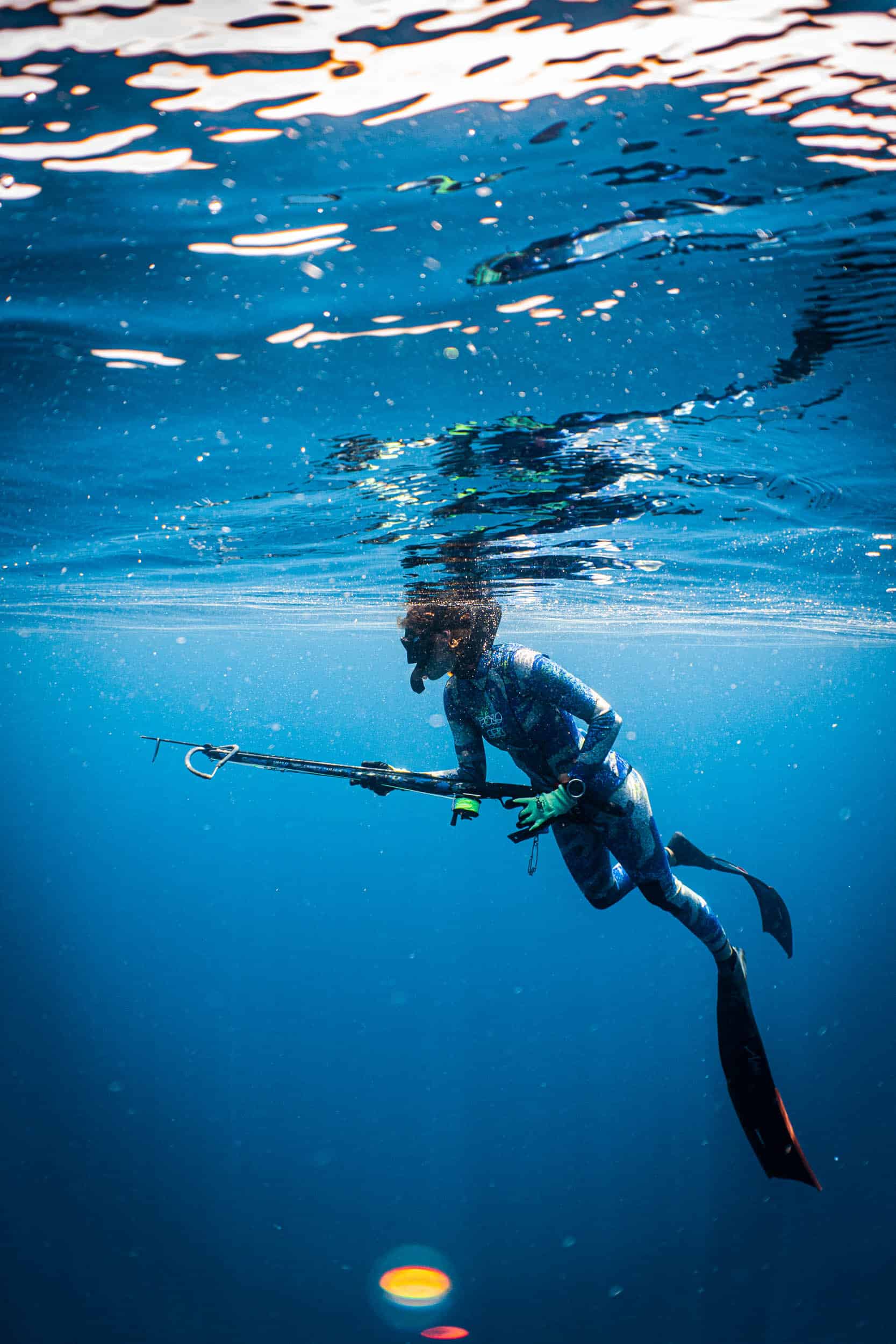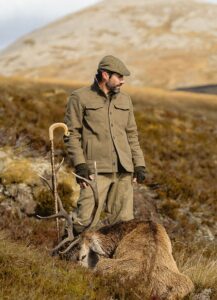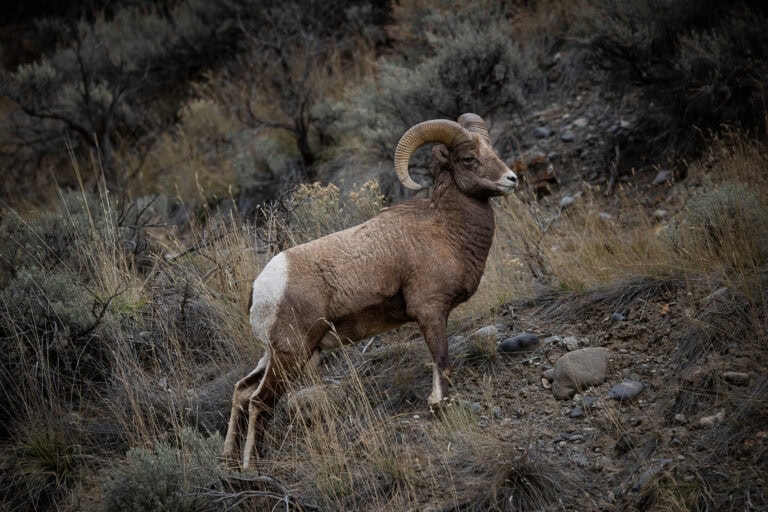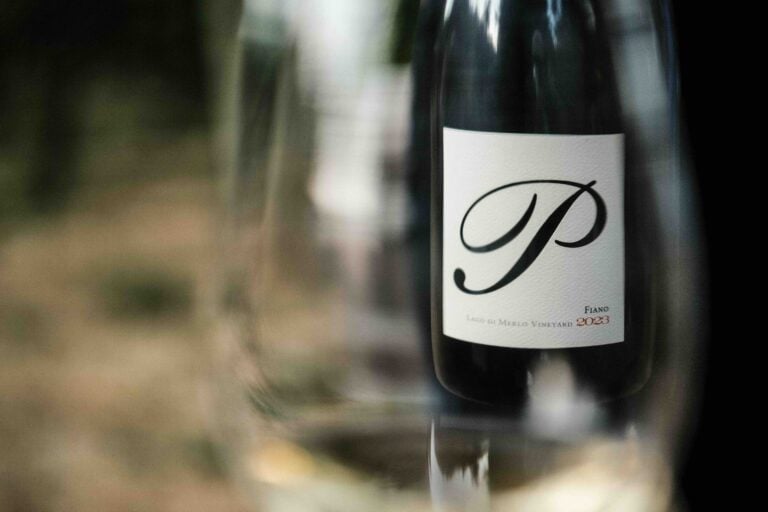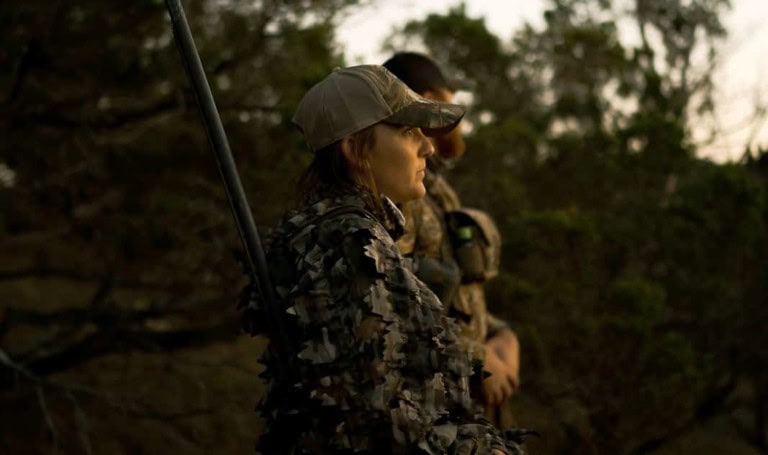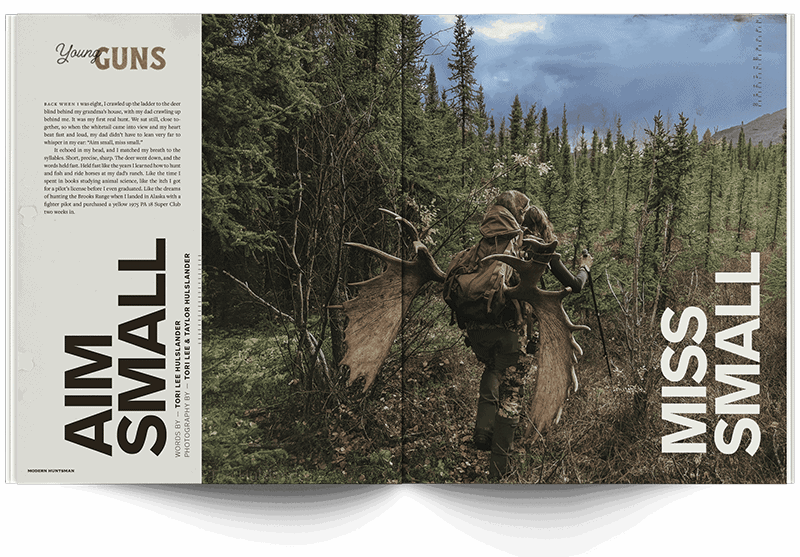“Part of the beauty of spearfishing is that it requires sacrifice. You give up all of the power you have on land, like speed and strength, and put yourself in a vulnerable position to catch your food.”
Valentine tells me this in her French-Canadian accent, the silence between words broken by the scrape of a knife across the scales of a hogfish, the weight of the words accented by the gestures of her once-manicured, now-blood-covered hands. “As humans, we’re very inferior in the water. Even the smallest fish can swim so much faster than us. You still have to be strong though, because if you’re seen as weak prey, you might get eaten by a shark. But you also have to be humble and respect what’s around you. I think these are all really good skills to have in life.” We’re in the middle of the ocean some 30 miles off the coast of southwest Florida. The water is calm and clear, the skies are blue, and the sun is beating down on my “just emerged from a long Montana winter” skin. I’m here to learn the ropes of arguably the second-most dangerous sport in the world behind base jumping, and as Valentine quickly fillets a fish for ceviche, her three dive partners prepare their gear for the next location: a shipwreck known to host a lot of fish, and a lot of sharks. They’ll be diving down to about 80 feet — child’s play depths, I’m told — in hopes of spearing fish, then fending off opportunistic predators to get our would-be dinner into the boat. Yet Valentine Thomas, an accomplished 170-foot freediver who ranks among the top women in the world, was once deathly afraid of the ocean. Growing up in Montreal, Quebec, Valentine had a close-knit family and a comfortable life. Often, for summer holidays, she would travel with her mother, father and sister to explore the
